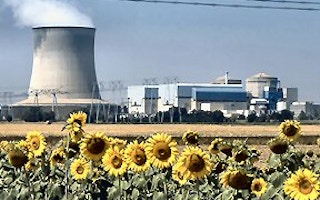In answer to an Eco-Business reader’s sustainability question, Tom Blees, president of The Science Council for Global Initiatives, has responded with his view that today’s nuclear technology provides the most reasonable solution.
The response is part of a joint question and answer initiative with the Global Energy Prize.
Question: What’s the way forward?
We already know the problems (Climate Change, Global Warming …) What are the solutions in your view?
Response: Nuclear with plasma conversion
Population growth and booming development around the world will require carbon-free energy availability on an unprecedented scale. It will also demand a method of complete recycling of as much of our resources—particularly metals—as possible. All this must be accomplished without depending on people’s behavior to conscientiously restrict their consumption, human nature being what it is. Any purported solution that involves behavior modification is no solution at all.
The only source of virtually unlimited dependable clean energy is nuclear power, specifically fast reactors, otherwise called breeder reactors. These are capable of using not only nuclear waste and weapons materials as fuel, but they can also consume the millions of tons of depleted uranium in every country that has been using nuclear power. There is enough such fuel out of the ground already to provide for all of humanity’s energy needs for nearly a thousand years without any further mining or enriching of uranium.
As for recycling, a technology called plasma conversion is capable of deconstructing molecules into their constituent elements, separating the hydrogen, oxygen and carbon (from which we can make anything now made of petroleum), recovering the metals, and creating building materials from what’s left. Both of these technologies will work regardless of people’s personal behavior, and allow us to provide both energy and material abundance, which experience has shown will curb population growth.
Tom Blees is a member of the international selection committee for Russia’s Global Energy Prize. He is the president of The Science Council for Global Initiatives and the author of Prescription for the Planet – The Painless Remedy For Our Energy & Environmental Crises.
In another recent article stemming from the question and answer session (“Letting the market decide“), nuclear energy was again a topic for debate.
An Eco-Business reader submitted the following comment regarding the recent article: “Seems like the cost ascribed to the building of nuclear plants has been as thoroughly thought through as that of fossil fuel plants. Has the author factored in the decommissioning cost of the nuclear plant (where the UK Department of Energy & Climate Change is currently facing a bill of GBP5.4 billion) or the associated storage costs for the spent fuel over thousands of years?
“There is sufficient solar energy hitting the planet to power all human activity many thousands of times over & it is crazy that we allow false accounting arguments to slow the migration towards using it.”
Clearly, further global discussion is needed in the area of clean energy.
About the Global Energy Prize
The Global Energy Prize was established in 2002 by a group of Russian scientists, with the support of major energy corporations. This international award is granted for outstanding scientific achievements in the field of energy which have proved of benefit to the entire human race. Since its inception, the award has been granted to 22 scientists from Great Britain, Iceland, Canada, Russia, the USA, Ukraine, France, Germany and Japan. Awarded annually, the prize fund amounts to 30 million roubles (approximately $1m USD) and is divided among the Laureates. The President of the Russian Federation participates in the awards ceremony held in St Petersburg each year, which is accompanied by a Laureates’ Week celebrating the work of the winning scientists.
Learn more about the Global Energy Prize.











